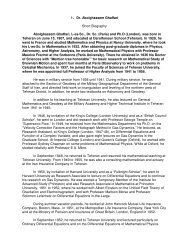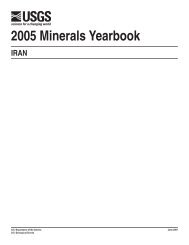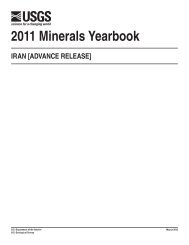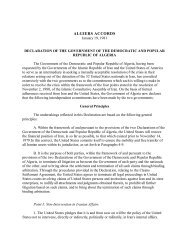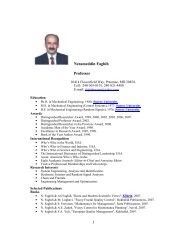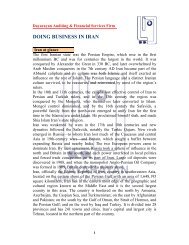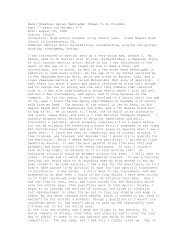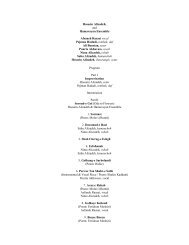You also want an ePaper? Increase the reach of your titles
YUMPU automatically turns print PDFs into web optimized ePapers that Google loves.
<strong>Iran</strong> <strong>Country</strong> <strong>Analysis</strong> <strong>Brief</strong><br />
contractor funds all investments, receives remuneration from NIOC in the<br />
form of an allocated production share, then transfers operation of the field to<br />
NIOC after the contract is completed. This system has drawbacks for both<br />
sides: by offering a fixed rate of return (usually around 15-18 percent), NIOC<br />
bears all the risk of low oil prices. If prices drop, NIOC has to sell more oil or<br />
natural gas to meet the compensation figure. At the same time, companies<br />
have no guarantee that they will be permitted to develop their discoveries, let<br />
alone operate them. Finally, companies do not like the short terms of<br />
buyback contracts.<br />
The first major project under the buyback investment approach became<br />
operational in October 1998, when the offshore Sirri A oil field (operated by<br />
Total and Malaysia's Petronas) began production at 7,000 bbl/d. The<br />
neighboring Sirri E field began production in February 1999, with production<br />
at the two fields expected to reach 120,000 bbl/d.<br />
In March 1999, France's Elf Aquitaine and Italy's Eni/Agip were awarded a<br />
$1 billion contract for a secondary recovery program at the offshore, 1.5-<br />
billion-barrel Doroud oil and natural gas field located near Kharg Island. The<br />
program is intended to boost production from around 136,000 bbl/d to as high<br />
as 205,000 bbl/d. Total is operator of the project, with a 55 percent<br />
share, while Eni holds the other 45 percent.<br />
In April 1999, <strong>Iran</strong> awarded Elf (46.75 percent share), along with Canada's<br />
Bow Valley Energy (15 percent share), a buyback contract to develop the<br />
offshore Balal field. Eni is also involved, with a 38.25 percent stake. The<br />
field, which contains some 80 million barrels of reserves, started producing at<br />
a 20,000-bbl/d rate in early 2003, and reportedly reached 40,000 bbl/d in<br />
February 2004.<br />
On March 18, 2005, a much-sought-after contract to develop the giant<br />
Bangestan field was awarded to Petro <strong>Iran</strong> Development Co., after having<br />
been delayed several times since 2001. Bangestan contains an estimated 6<br />
billion barrels of oil reserves and produces about 250,000 bbl/d of oil, but the<br />
http://www.eia.doe.gov/cabs/iran.html (7 of 32) [3/30/2005 8:12:05 AM]



